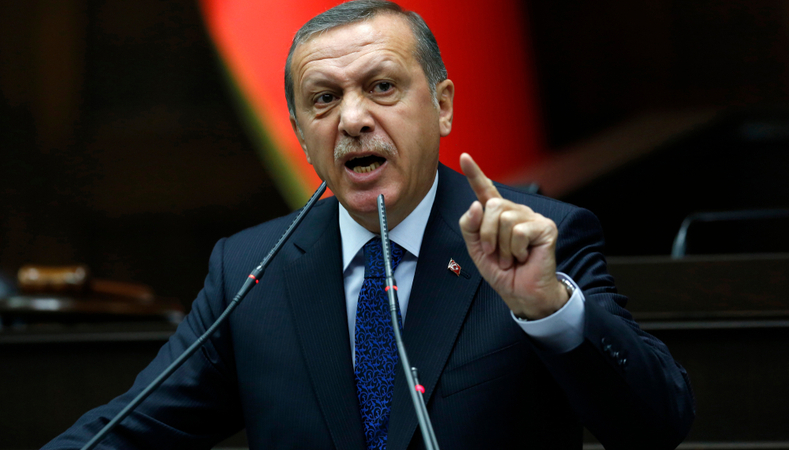Fresh sanctions from US and EU leave Turkey in a tight spot

Reuters reported on Friday that US administration was likely to impose fresh sanctions on Turkey for purchase of Russian S-400 air defense systems last year. Five sources close to the matter confirmed the news to Reuters including three US officials. But the announcement of sanctions was not taken as a surprise act, rather were long due as under the US federal law, Countering America’s Adversaries Through Sanctions Act (CAATSA), signed in 2017, US could have imposed economic sanctions against Ankara for acquiring and testing S-400. Many believed that Trump was avoiding to put his foot down with regard to the matter due to his friendly ties with Turkish President Recep Tayyip Erdogan.
Turkey’s defence deal with Russia came under scanner as it was a direct violation of NATO clause and posed major threat to the America’s most exclusive and expensive air defence program, F-35.Russia delivered the first batch, including four missile batteries, in July 2019, a week after which US formally suspended Ankara from its defence program. Ankara tested this premium defence device in October this year, alarming all other NATO allies including UK, France, Germany and Greece.
Besides US, the European Union also joined in to impose sanction on Ankara for its interventionist and aggressive foreign policy which led to Turkish oil exploration in contested Greek and Cryptic waters in Mediterranean Sea. Besides, Turkish military intervention in Syrian and Libya became a major cause of worry for the bloc. Though, EU has not given out details of its sanctions and would do so only after holding discussing with US President Elect Joe Biden. Besides, the EU members nations have not yet taken a unified call over type of sanctions to be implemented between trade sanctions and arms embargo.
Josep Borrell, the EU foreign affairs chief said that the names of the Turkish officials facing sanctions would be published in the next few weeks. He added that the bloc would also present proposals on its approach towards Turkey by March, which would also give the EU time to consult Joe Biden’s national security team.Many observers believed that sanctions imposed on Ankara, which also happens to an important NATO ally, could prove to a tricky move as neither US nor EU would wish to push the nation towards Russia.
A senior Turkish official wanted that US sanctions might only complicate the already strained ties between the two nations, rather than leading to an constructive solution. “Sanctions would not achieve a result but be counter-productive. They would harm relations. Turkey is in favor of solving these problems with diplomacy and negotiations. We won’t accept one-sided impositions,” he said.With respect to EU’s sanctions, the Turkish ministry of foreign affairs issued a statement: “We reject the biased and unlawful attitude which had to be inserted into the 10 December EU summit conclusions after the pressure of solidarity and veto.”




